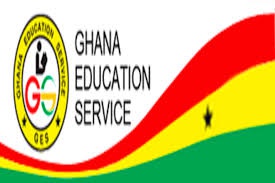 File photo the Ghana Education Service
File photo the Ghana Education Service
The links between poverty and low literacy in Africa are profoundly strong and intergenerational but they are not inevitable. In this continent, the link between social mobility and socioeconomic status is more profound than in most other developed countries.
Despite numerous government strategies, this situation has persisted over the last 50 and more years, which shows that, as a continent, we are yet to address these challenges.
A 2019 report by the United Nations Educational, Scientific and Cultural Organization (UNESCO) stated that about 70 per cent of the countries and areas for which data are available have eradicated or nearly eradicated illiteracy among its youth. However, in several countries in West and Central Africa, youth literacy rates remain less than 50 per cent, lagging behind world averages of about 90 per cent.
COVID-19 has further disproportionately marginalized young people already on the wrong side of the digital divide and many of this people are thought to be at the risk of never returning to school.
It is a time to reflect on the setbacks and to recommit to building more equitable and effective education systems towards attaining sustainable development goal (SDG) 4. This is the opportune time for us to work together to create a better world through education. Underlining the importance of accessibility of reading materials, the governments, academia, civil society and the private sector must find innovative ways to promote a reading culture.
Education starts and end with reading. Young people, parents, families and communities must be at the forefront –driving the agenda to develop cultural tendencies that promote reading and writing and lifelong learning opportunities for everyone.
This year has taught us to find hope in ourselves –that hope isn’t something you ask of others, it is something you must first give to yourself. Parents must be exemplary at home by reading books themselves, as well as to their children who could not yet read and buy storybooks for those in school.
Parents are the primary socializing agent of young people. Whether young people develop successfully depends substantially on whether parents provide the physical and psychological conditions children need to acquire developmental competencies. Deliberate investment in young people is the most transformative investment any family or society can make.
It is vital to also give central place to strengthening appropriate legislation towards establishing public libraries and a national digital library.
The phenomenon where you generally see people crowded around a newspaper vendor is instructive to note that people really want to read.
We need to quickly act to avert the impact not just in terms of the impact on individuals, on their hopes and aspirations, but also the impact on mass society and on our collective well-being. We need to put our money where our mouths are in terms of investing in our young people in order to build an inclusive future that is desirable for all of us.